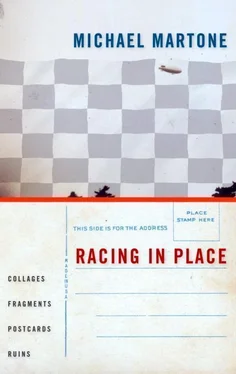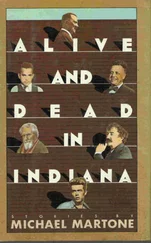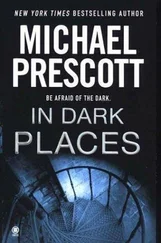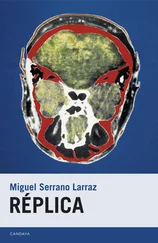Bob Knight, from Orrville, Ohio, spent twenty-nine years in Indiana, a state identified, if it has any identity at all, with the game of basketball. The ESPN movie features documentary interludes where real Hoosiers speak adoringly of their coach and their game. My mother reports from Fort Wayne that now the malls not only stock IU and Purdue licensed merchandise but Texas Tech stuff as well. Bob Knight's story has always been and continues to be a story also about Indiana.
Believe me, it is a burden being nice. When you inhabit The Heartland in this country, which this country also calls The Flyover, you begin to live this crazy contradiction. You believe, on the one hand, that you are the center of all that is good, true, and valuable. You are, you believe, the embodiment of American values and traditions, whatever they are. But simultaneously you know, in your heart of hearts, you are also in the middle of Nowheresville. So you keep up appearances. You're honest, optimistic, innocent, polite, respectful, and most of all nice. Nice is us. We are nice to the nth degree. And yet, it wears on you, keeping alive the flame of civility you believe is the flame of civilization.
In my favorite episode of Law and Order, a New York City woman who has murdered her sister to assume her identity is finally cornered by the DA. You took your sister's life, he accuses. And she answers, "My sister lived in Terre Haute, Indiana. She had no life."
Hoosiers, being nice, won't talk about this: Bob Knight is a monster. But he is our monster.
Because he won, because his program was clean, because his players graduated, because he played by the rules, especially because he played by the rules, because, finally, all of that was, well, nice, we allowed him to be something more. Because he was so very nice he could also become, for Hoosiers, the antiHoosier as well. He became for us, who constitutionally can't act out, our designated hitter, our surrogate rage against those stupid rules, our projection of the best-suppressed id on any forbidden planet. He is the thing in us all spoiling to be not nice.
You, who are Not Nice by nature, cannot begin to imagine how thrilling it is for the Nice to witness such public displays of emotion, any emotion, that Bob Knight could concoct. How the pent-up grudges, the slights, the nagging doubts, the inferiority, the martyrdom, the secret vanity, the righteousness even, and all those virtues that we must maintain and nurture, all of it gets bled off by the maniac in the bright red shirt. All heck, as we say, breaks loose.
I look at the four Hoosiers hovering behind Coach Knight. I wonder if the change of venue to this Bizarro Indiana will still work its empathetic catharsis. I can't imagine Texans plugging into this dynamic. Where is the understatement to foil the flamboyance? It's not quite the same. Bob Knight sits quietly on the Texas Tech bench. All around me Texans are going nuts as their team takes a commanding lead. But all the Hoosiers in the house wait on the Coach and on what he will do next.
My Father Has Been Turned into a Monstrous Vermin


My Father Turned into a Monstrous Vermin
I was in Fort Wayne for the millennium's New Year's celebration. My mother was on the municipal committee that had planned the year's events that culminated with the fireworks launched from the top of the Summit Bank Building downtown. Freezing, the crowd below watched the display from the new park built with the proceeds derived from another recent celebration, the bicentennial of the city's founding in 1774. The park was a wonderful legacy. It had been built on an often-flooded floodplain with a design that recognized that fact. The flowerbeds were planted with ornamental grasses, yellow flag iris, and bull rushes and reeds that thrived in swampy conditions. The fountains produced a fine primordial mist, subtly lit, that floated over the marshy fields. In the cold of that night, the misting fountains created a crystalline landscape both old and new as the citizens of Fort Wayne greeted the turning of the age.
My mother had been on the bicentennial committee as well, and, in both cases, she had been instrumental in the development of the mascots. The bicentennial wasn't hard to figure out. Someone dressed up as General Anthony Wayne and made the appearances at the parades, beer tents, plaque dedications, and battle reenactments. Johnny Appleseed was a close second-he's buried in Fort Wayne-but the general looked better in uniform and lacked the cooking pot on the head. And besides, General Wayne came equipped with a horse. The millennium required more brainstorming. My mother, always the poet, finally rested on the notion the millennium would best be represented by a millipede, a millipede she named, for no other reason than the alliterative, Millie.
A costume was commissioned. The millipede would be incredibly long. Most of it would be dragging along the ground. The segmented body suit in greenish velour and black velveteen piping had oversized antennae, bugged-out eyes, and a butterfly's coiled proboscis. The multiple pairs of legs, only two pairs of which would be operable, were connected together in order for all of them to simultaneously move, marionette fashion, as the operator walked along.
My mother volunteered my father to be the bug. I teased her when I called home about the symbolism of the committee's mascot being a verminous scavenger.
"They're herbivorous," she replied.
"But hard to make cuddly, I bet," I said.
And what about having my father, her husband, appear for a year as this creepy crawly thing.
"No one will know," she said.
I had recently moved south, below the bug line as we like to say, the climatic zone where the winter wasn't cold enough to kill off insects. Infesting our new house, we discovered moving in, was a hatch of millions of millipedes or what we found out were millipedes once the county extension agent duly identified them. I have grown somewhat familiar to the flying roaches and the grasshoppers as large as small cats.
"You'd be surprised," my mother said, "about how cuddly your father is, millipede or not."
"You might have at least called him Milton or Mick the Millipede."
My father was good-natured about it all, suited up and crossed genders. My mother sent pictures of Millie in the parades, at the ribbon cuttings, in front of the huge numbers counting down on the official digital clock. I received a video of the ceremony in the park, the burial of the time capsule. I saw my father as the giant creature wave his many hands at the camera, inch his way through the festive crowd with the gold-plated shovel. He looked like a bad special effect, a monster from a Japanese Godzilla film, his dragging tail cutting a swath of destruction through a twig and tissue paper city.
By the time I actually saw him in costume in person on New Year's Eve, my father's tail had worn dramatically thin from the continuous friction of his various civic duties. They had taken to wrapping the nether region up over one shoulder of the upright upper half. The result was a commingling of legs or, now more accurately, arms that seemed to emanate from the lime body at every angle. That night the committee had sponsored a carnival for children at the Fine Arts Center to help them stay awake for the fireworks at midnight. The building was lousy with screaming kids doing spin art, singing karaoke, and having their faces painted. My father, as Millie, moved through the crowds. The children were strangely calmed by the hulking figure, magnetically drawn to hold one of its many hands as it slithered along. It led a little parade over to the park, the children still attached. Millie seemed to undulate through the ground-hugging fogs the fountains produced, lugging its cargo of limpid limpets. It stopped and turned dramatically to face the sound of the first exploding bombs going off above the city.
Читать дальше














